Daily Vocabulary Words: List of Daily Used Words in Leading International Newspapers
Hi there. Welcome to this special section @ Wordpandit.
Our endeavour here is very simple: to highlight important daily vocabulary words, which you would come across in leading newspapers in the country. We have included the following newspapers in our selection:
• The New York Times
• The Washington Post
• Scientific American
• BBC
• The Guardian
• Psychology Today
• Wall Street Journal
• The Economist
We are putting in extensive work for developing your vocabulary. All you have got to do is be regular with this section and check out this post on a daily basis. This is your repository of words that are commonly used and essentially, we are posting a list of daily used words. Hence, this has significant practical application as it teaches you words that are used commonly in leading publications mentioned above.
Visit the website daily to learn words from leading international newspapers.
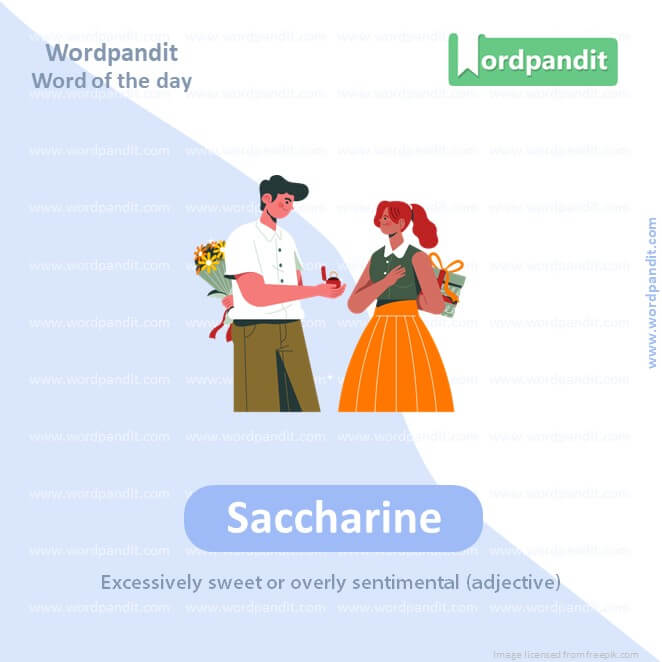
WORD-1: Saccharine
CONTEXT: The world, it seems, is tired of Ukraine. Worse, it is bored. So, the columnists who once praised Zelenskyy’s courage and Ukraine’s resistance in saccharine-laced homilies have largely forsaken both.
EXPLANATORY PARAGRAPH: Saccharine is like something super, super sweet, even sweeter than your favorite candy. It can also describe things that try to be really sweet or nice in a way that doesn’t feel real, like a story that’s too perfect.
MEANING: Excessively sweet or overly sentimental (adjective).
PRONUNCIATION: sak-uh-reen
SYNONYMS: syrupy, sugary, cloying, overly sweet, sentimental
USAGE EXAMPLES:
1. The movie’s saccharine ending didn’t seem realistic.
2. He gave a saccharine smile that didn’t look genuine.
3. The saccharine flavor of the drink was too much for her.
4. She wrote a saccharine letter full of exaggerated compliments.
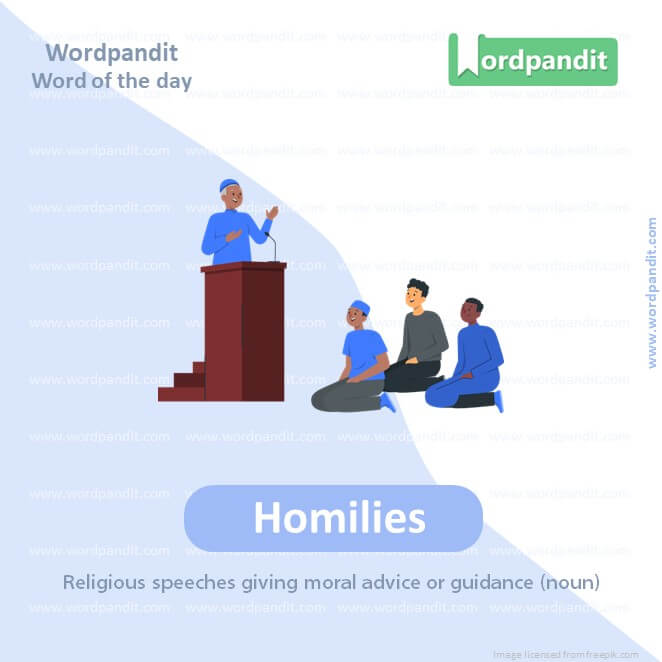
WORD-2: Homilies
CONTEXT: The world, it seems, is tired of Ukraine. Worse, it is bored. So, the columnists who once praised Zelenskyy’s courage and Ukraine’s resistance in saccharine-laced homilies have largely forsaken both.
EXPLANATORY PARAGRAPH: Homilies are like special talks or lessons that a priest or minister gives in church. They tell stories or give advice to help people learn about being good and doing the right thing.
MEANING: Religious speeches giving moral advice or guidance (noun).
PRONUNCIATION: hom-uh-lees
SYNONYMS: sermons, lectures, preachings, discourses, moral teachings
USAGE EXAMPLES:
1. The pastor’s homilies were always inspiring.
2. She listened attentively to the homily about kindness.
3. Each Sunday, a new homily was given at church.
4. The homilies often included important life lessons.
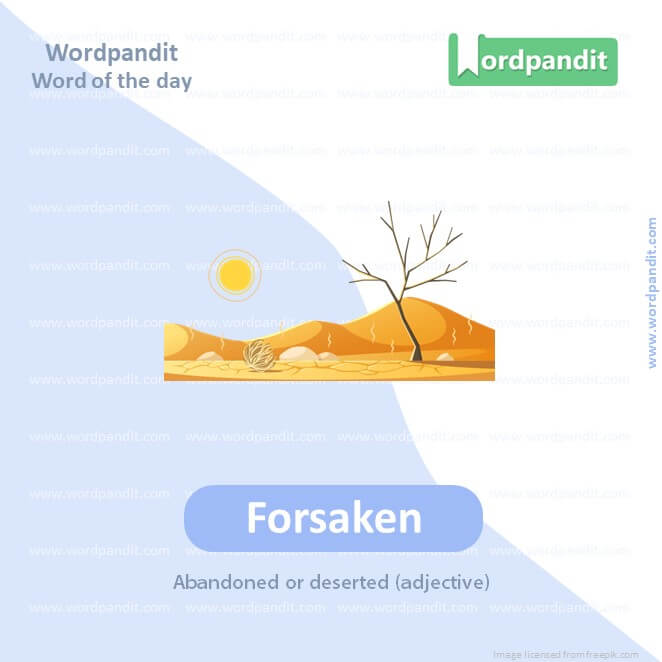
WORD-3: Forsaken
CONTEXT: The world, it seems, is tired of Ukraine. Worse, it is bored. So, the columnists who once praised Zelenskyy’s courage and Ukraine’s resistance in saccharine-laced homilies have largely forsaken both.
EXPLANATORY PARAGRAPH: Forsaken is when someone or something is left all alone or forgotten. Imagine if a toy is left behind and no one plays with it anymore, it’s like the toy is forsaken.
MEANING: Abandoned or deserted (adjective).
PRONUNCIATION: for-say-kn
SYNONYMS: abandoned, deserted, left alone, neglected, forgotten
USAGE EXAMPLES:
1. The old building looked forsaken and lonely.
2. He felt forsaken when his friends moved away.
3. The forsaken island was uninhabited.
4. The dog was forsaken and needed a new home.
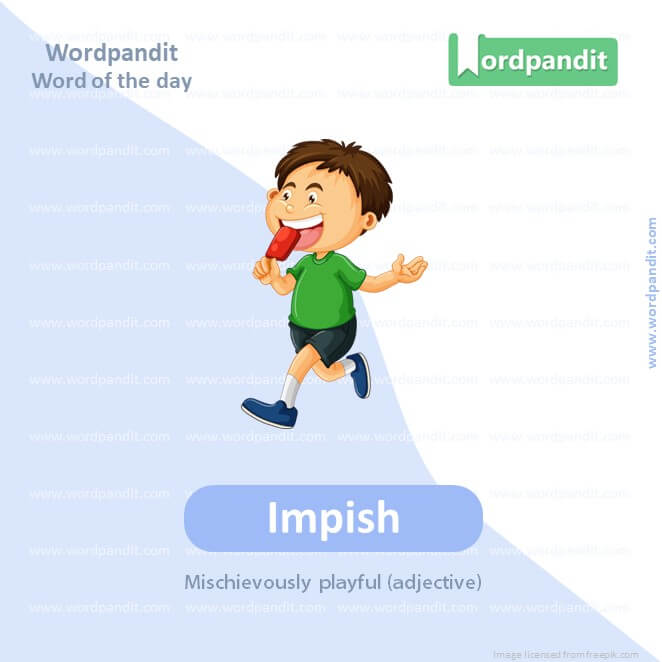
WORD-4: Impish
CONTEXT: Gone too are the invitations to address US Congress or parliaments, where, clad in his trademark green pullover, Zelenskyy was feted as an impish, unorthodox warrior and liberator.
EXPLANATORY PARAGRAPH: Impish means being playful and a little bit naughty in a fun way. Imagine a kid making funny faces or playing little tricks that make everyone laugh. That’s being impish.
MEANING: Mischievously playful (adjective).
PRONUNCIATION: imp-ish
SYNONYMS: mischievous, playful, naughty, cheeky, roguish
USAGE EXAMPLES:
1. The boy had an impish grin when he played pranks.
2. Her impish behavior always made her friends laugh.
3. He told his story with an impish twinkle in his eye.
4. The kitten’s impish antics were amusing.
WORD-5: Liberator
CONTEXT: Gone too are the invitations to address US Congress or parliaments, where, clad in his trademark green pullover, Zelenskyy was feted as an impish, unorthodox warrior and liberator.
EXPLANATORY PARAGRAPH: A liberator is like a hero who helps free people or animals from being trapped or treated badly. Imagine someone unlocking a cage to let a bird fly away. That person is like a liberator.
MEANING: Someone who sets others free from captivity or oppression (noun).
PRONUNCIATION: lib-er-ay-tor
SYNONYMS: emancipator, rescuer, savior, deliverer, freedom fighter
USAGE EXAMPLES:
1. The leader was known as a liberator of the oppressed people.
2. The story of the liberator inspired many.
3. In the movie, the hero became a liberator of the enslaved aliens.
4. The animal rights activist was a liberator for caged animals.
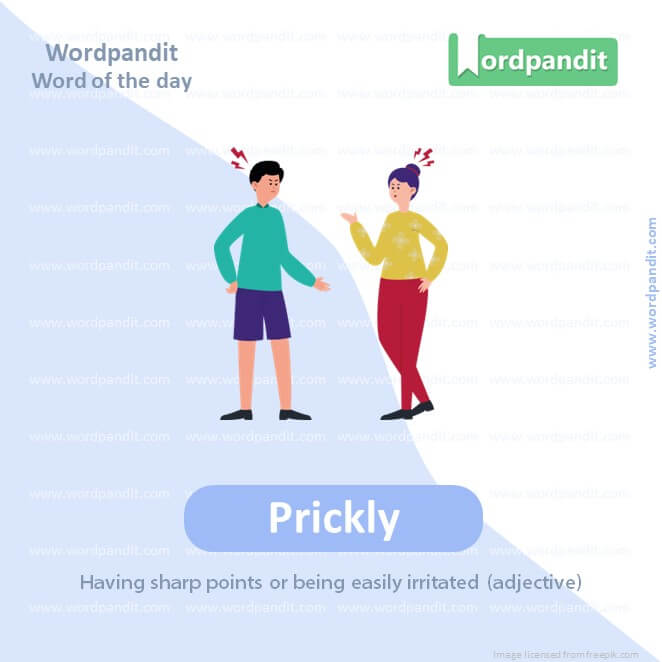
WORD-6: Prickly
CONTEXT: The mass demonstrations of solidarity with Ukraine’s “brave” and “just” fight disappeared many months ago. Ukraine is no longer urgent, sympathetic “news”. Lately, the only “news” that Zelenskyy and Ukraine are inviting is mostly bad – courtesy, in part, of unflattering leaks from a skittish White House. “Leaked US strategy on Ukraine sees corruption as the real threat,” the prickly headline on Politico’s popular online portal read.
EXPLANATORY PARAGRAPH: Prickly is like something that is sharp and can poke you, like a cactus or a rose bush with thorns. It can also describe someone who gets easily upset or is hard to talk to, like a person who gets annoyed very quickly.
MEANING: Having sharp points or being easily irritated (adjective).
PRONUNCIATION: prik-lee
SYNONYMS: spiky, thorny, irritable, touchy, sensitive
USAGE EXAMPLES:
1. The prickly cactus hurt her hand when she touched it.
2. He was in a prickly mood and snapped at everyone.
3. The bush had prickly thorns that made it hard to trim.
4. She found the prickly texture of the plant interesting.
WORD-7: Stalled
CONTEXT: An old war has turned into a plodding stalemate. The ballyhooed Ukrainian “offensive” has stalled. The promised “breakthrough” remains stubbornly elusive – if possible at all. The lethal, tit-for-tat exchanges have sadly become routine. Stoicism has replaced outrage. However it may be defined, “victory” is far beyond strategic or even conceivable reach.
EXPLANATORY PARAGRAPH: Stalled is when something stops moving or working for a bit. It’s like when you’re playing with a toy car and it suddenly stops rolling. That means it’s stalled.
MEANING: Came to a standstill or stopped making progress (verb).
PRONUNCIATION: stawld
SYNONYMS: halted, stopped, paused, delayed, immobilized
USAGE EXAMPLES:
1. The car stalled in the middle of the road.
2. The talks between the two countries have stalled.
3. Her career stalled after a series of setbacks.
4. The computer system stalled due to a glitch.
WORD-8: Damning
CONTEXT: The story’s lead sentence was equally damning and a blatant sign that America’s – and, perhaps more particularly, US President Joe Biden’s – steadfast affection for plucky Ukraine is beginning to wane.
EXPLANATORY PARAGRAPH: Damning is like having proof that shows someone did something wrong. Imagine you have a picture that shows someone was the one who ate the last cookie. That’s damning evidence.
MEANING: Severely incriminating or suggesting guilt (adjective).
PRONUNCIATION: dam-ning
SYNONYMS: incriminating, condemning, accusatory, implicating, indicting
USAGE EXAMPLES:
1. The evidence was damning against the defendant.
2. He gave a damning statement against his partner.
3. The report provided damning details about the scandal.
4. Her reaction was damning to her claim of innocence.
WORD-9: Blatant
CONTEXT: The story’s lead sentence was equally damning and a blatant sign that America’s – and, perhaps more particularly, US President Joe Biden’s – steadfast affection for plucky Ukraine is beginning to wane.
EXPLANATORY PARAGRAPH: Blatant is when something is very obvious and not hidden at all. It’s like when someone is being really loud in a quiet room and everyone can hear them. Or, if someone is not telling the truth, and it’s really easy to tell that they are not being honest.
MEANING: Very obvious and done without any attempt to be hidden (adjective).
PRONUNCIATION: blay-tuhnt
SYNONYMS: obvious, clear, conspicuous, undisguised, glaring
USAGE EXAMPLES:
1. His blatant disregard for the rules got him in trouble.
2. The mistake in the report was blatant and easy to spot.
3. She made a blatant attempt to cheat during the game.
4. There was a blatant difference between the two paintings.
WORD-10: Steadfast
CONTEXT: The story’s lead sentence was equally damning and a blatant sign that America’s – and, perhaps more particularly, US President Joe Biden’s – steadfast affection for plucky Ukraine is beginning to wane.
EXPLANATORY PARAGRAPH: Steadfast is like being really strong in what you believe or do, and not giving up or changing your mind, no matter what. It’s like holding on tight to a rope and never letting go.
MEANING: Firm and unwavering in purpose, loyalty, or resolve (adjective).
PRONUNCIATION: sted-fast
SYNONYMS: unyielding, resolute, unwavering, loyal, determined
USAGE EXAMPLES:
1. Her steadfast dedication to her studies was admirable.
2. He remained steadfast in his support for his friend.
3. Despite the difficulties, she was steadfast in her goals.
4. The team showed steadfast commitment to the project.
Vocabulary English
In the fascinating journey of language exploration, ‘vocabulary English’ stands as a powerful pillar. It represents the diverse array of words that bring thoughts and emotions to life. However, to unlock the full potential of ‘vocabulary English’, it’s necessary to adopt a comprehensive and strategic approach.
Understanding ‘vocabulary English’ goes beyond the mere repetition of words. It demands an intricate weave of understanding, memorization, and application. To grasp the essence of the ‘vocabulary English’, diversify your language resources. Engage with novels, biographies, news articles, and digital content to introduce yourself to words in real-world contexts.
A key to mastering ‘vocabulary English’ involves leveraging effective memory techniques. Use flashcards and digital apps that support active recall and spaced repetition. Mnemonic devices can also be beneficial. Establishing personal, visual, or narrative connections to words foster better recall and understanding.
Consistent exposure to ‘vocabulary English’ greatly enhances learning. Create dedicated time slots for regular vocabulary practice. This method not only consolidates learnt vocabulary but also introduces new words on a daily basis, ensuring a balanced and continuous learning process.
Practice holds the power to transform your ‘vocabulary English’ learning experience. Application of learnt words in daily conversations, professional communication, or digital platforms embeds them deeper into your long-term memory.
In essence, embracing ‘vocabulary English’ is a marathon, not a sprint. It requires immersion in various resources, using memory-enhancement techniques, continuous exposure, and above all, incessant practice. As you navigate this path, you’ll watch your ‘vocabulary English’ grow, raising your language proficiency and connectivity with the English-speaking world. It’s a fascinating journey that opens doors to different cultures, experiences, and opportunities. So, step forth, embrace ‘vocabulary English’, and let the journey begin!











